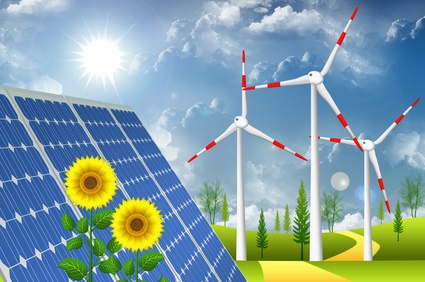Uzbekistan, which has used alternative energy on a fairly large scale since the Soviet era, intends to actively promote the use of renewable energy sources.
"Using solar energy, wind power and other alternative energy is the most promising thing to do in terms of environmental cleanliness and availability of resources," Rustam Makhmudov, deputy director of the Uzbek Centre for Political Studies, told Central Asia Online. "Traditional fuels have grown more expensive from year to year, so using alternative energy is an urgent matter."
And since the March 1 publication of the presidential decree "On measures to further develop alternative energy sources," private entrepreneurs and inventors have emerged, eager to support the government efforts there.
"Boosting the industry will help avoid the kinds of international conflicts that flare up today in this region over access to energy sources," Makhmudov said.
Developing the sector is important both economically and politically, observers say, and both small and large businesses will benefit from the renewed emphasis.
"Since it [the presidential decree] envisages not only a variety of research projects but also efforts to stimulate producers and users of solar and bio-gas energy, those businesspeople, in addition to the tax benefits and preferences promised to them, will also be offered small loans (up to US $10,000 [21.5m UZS]) if they need them," UzbekEnergo spokeswoman Makhkuma Bayeva said.
The government in July started discussing a bill "On alternative energy sources" that would outline the benefits and preferences to which producers will be entitled, she said.
The Tashkent-based company Uzelektroapparat-Elektroshchit in June began producing new portable photo-electric power stations.
"The station consists of a large metal container with a solar panel that converts solar energy to electricity, accumulating it in the battery," company technician Elyer Fatkhullayev said. "The station is convenient to use where there's no stationary power supply."
"A factory will begin operating in the Navoi free economic zone in October to manufacture 100MW photo-electric panels on the basis of the latest technology," Bayeva said, adding that another 100MW private solar photo-electric station is slated to start up in Samarkand Oblast.
Also pending are a number of projects devoted to low-capacity hot-water and heating plants, photo-electric and thermo-dynamic transformations to produce electricity, the use of solar energy in synthesising special materials, and thermal treatment of materials and structures.
And Samarkand businessman Ishkashim Usmonov plans to start a project this autumn using wind power.
"I'm sure such a project will help many people," he said. "If the authorities provide support, that'll be great."
Businessmen praised the benefits of having more energy options. "These [alternative energy] systems are essential where blackouts are frequent," Asror Maksudov, the owner of a chain of grocery stores, said. Ever since he set up his stores to use solar energy, the cash registers and refrigerators in his shops have worked without interruption.
Dilmurod Irgashev, owner of a private clinic in Tashkent, is using solar energy too, noting that his clinic now remains operational during periodic blackouts. He is also able to save on traditional kinds of energy, such as gas and electricity.
"A business should be responsible for the resources that it uses," Irgashev said, adding that it should also "set an example of how to use alternative energy". Anyone – a big businessman, a bank employee or a farmer – can do this at one's own level, he said.
Uzbekistan meets every prerequisite for developing alternative energy, but using it more consistently in business requires scientific support, Tashkent physicist Abdujabor Abdurakhmanov told Central Asia Online.
"Uzbekistan could become a good proving ground for experimentally integrating [alternative energy] technology," he said, noting the country's sunny weather.
In line with the March 1 presidential decree, the International Solar Energy Institute (MISE) will implement high-tech projects involving commercial uses of solar energy. The institute will also conduct applied research on how to use solar energy in different industries.
Initially, MISE might have trouble finding qualified researchers, another physicist, Rustam Rakhimov, warned.
"Many of the [predecessor energy research institute]'s researchers have left the country, and youth are reluctant to apply for work at the institute because of a lack of funds," he said, noting that Uzbek scientists have lost status during recent years of cutbacks in scientific funding.
However, many colleges and universities will start training qualified scientists for the energy sector this autumn, Higher and Secondary Special Education Deputy Minister Farkhod Rizayev said.
